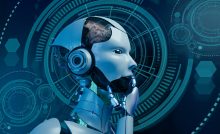Harnessing the Power of Artificial Intelligence for Social Good


Artificial Intelligence (AI) has grown rapidly over the last decade, transforming industries and reshaping the way we work, communicate, and live. However, AI is not just about efficiency, automation, and profit—it’s also a powerful tool that can drive social good. Here, we explore the potential of AI in creating societal change, offering solutions to pressing challenges, and creating a more equitable world.
Understanding Artificial Intelligence
Before delving into how AI can foster social good, let’s first understand what it entails. At its core, AI is a branch of computer science that aims to build systems capable of performing tasks that usually require human intelligence. This includes understanding natural language, recognizing patterns, solving problems, and making decisions.
AI incorporates various subfields, including machine learning (where systems learn from data to improve their performance), natural language processing (helping machines understand and respond to human language), and computer vision (enabling machines to see and interpret visual information).
How AI Contributes to Social Good
Now that we understand the basics of AI, let’s explore how it can promote social good across various sectors.
Healthcare
AI has the potential to revolutionize healthcare, providing solutions ranging from disease prediction and diagnosis to patient care and treatment planning. Machine learning models can analyze vast amounts of data to predict disease outbreaks, identify high-risk individuals, and suggest personalized treatment plans.
For instance, AI algorithms have been used to predict and manage the COVID-19 pandemic, helping policymakers make informed decisions. On a more individual level, AI can aid in early detection of diseases like cancer, even before symptoms emerge, potentially saving lives through early intervention.
Environment
In the face of climate change and environmental degradation, AI can help us understand, mitigate, and adapt to these challenges. Machine learning can analyze climate data to predict future trends, helping policymakers make informed decisions about climate change mitigation.
AI can also optimize energy consumption, reducing carbon footprints. For example, Google used AI to reduce the energy used for cooling its data centers by 40%. On a smaller scale, AI can help households and businesses optimize their energy use, contributing to more sustainable communities.
Education
AI holds the promise of personalized learning, where educational content is tailored to individual students’ needs and learning styles. Intelligent tutoring systems can adapt to students’ knowledge level, provide timely feedback, and offer resources for improvement. This can make education more accessible and effective, particularly in remote areas or for students who might not have access to quality education.
Poverty Alleviation and Humanitarian Aid
AI can support poverty alleviation efforts by predicting areas of need, identifying the most effective interventions, and monitoring the impact of such interventions. It can also assist in humanitarian aid efforts, for instance, by using satellite imagery to assess the impact of natural disasters and direct resources effectively.
Furthermore, AI-driven chatbots and virtual assistants can provide information and services to people who lack them, including information on health, legal rights, or government services.
Ensuring Ethical Use of AI
While AI has great potential for social good, its use must be guided by ethical considerations. AI should be developed and used in a way that respects privacy, transparency, accountability, and fairness.
There is a risk that AI systems could unintentionally reinforce societal biases, as these systems often learn from historical data, which may reflect past prejudices. Therefore, it’s crucial to ensure that AI systems are designed and trained in a way that mitigates bias and promotes fairness.
Similarly, privacy is a major concern. While AI systems often rely on large amounts of data to function effectively, this data often includes sensitive information. Organizations must ensure that they respect privacy when collecting, storing, and using this data.
Conclusion
Artificial Intelligence holds immense potential for catalyzing social change and addressing some of the most pressing issues of our time. Whether in healthcare, education, environment, or humanitarian aid, AI can help us navigate these complex challenges more effectively and equitably. However, its power must be harnessed ethically, ensuring we address potential biases, privacy concerns, and accountability issues.
As we continue to unlock the power of AI for social good, collaborations and partnerships become ever more critical. Whether you’re a non-profit organization trying to optimize your impact, a government institution seeking to deliver better services, or a business aiming to align with social good initiatives, leveraging AI can be transformative.
That’s where Koneqt comes in. At Koneqt, we believe in the power of AI to make a positive impact on society. Our team of AI experts and enthusiasts are dedicated to helping you unlock the potential of AI in your work for social good. We provide tailored AI solutions, ensuring they are ethically designed, transparent, and human-centered.
If you’re ready to harness the power of AI for social good, let’s connect. Contact Koneqt today to explore how AI can elevate your work and maximize your impact. Together, we can leverage technology to create a more equitable, sustainable, and prosperous world.
Recent Posts
Teaming Up at Innovation’s Intersection
Kicking off with a Bang on Collaboration We're wrapping up our thrilling ride through AI…
Mastering Project Management in AI Implementation: A Comprehensive Guide
Overview In the evolving landscape of AI implementation, where innovation meets complexity, the mastery of…
Beyond Buzzwords: Strategic Integration of AI into Your Business Operations
In the dynamic world of tech evolution, Artificial Intelligence (AI) has not only become a…
Navigating the AI Maze: How to Choose the Right Tools for Your Business
As we delve deeper into the AI revolution, businesses are increasingly faced with a daunting…
The AI Revolution: Embracing Change in the Digital Age
Day 1: The AI Revolution: Embracing Change in the Digital Age Welcome to the dawn…
Navigating the AI Maze: Unraveling the Challenges and Limitations in the Corporate Sphere
1. Introduction: Embracing AI with Eyes Wide Open The dawn of artificial intelligence (AI) in…


